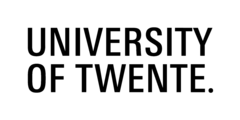Industrial Design Engineering

Combine design with engineering and technology to create the products, services and systems our future needs.
Will you design the consumer products of the future? Products that don’t just look good, but are also geared to the needs of end-users, the production process, packaging requirements and recyclability? In our three-year, English-taught Bachelor’s in Industrial Design Engineering you will learn to combine technology and creativity to design and improve products. Together with fellow students, you will spend time in the work-place designing and making physical and virtual (consumer) products that are practical to use, well-designed and in line with users’ needs and wants. If you want to get a solid foundation in technology and engineering and cover a variety of subjects, from mathematics to graphic design and from ergonomics to marketing, Industrial Design Engineering (IDE) is the right choice for you.
Many industrial design engineers have clear ideas about how something can be improved, and enjoy making something that people around them can actually use. In this Bachelor’s, you learn to translate the end-users' wishes into a product that works well and looks good. You do this by combining a variety of advanced technologies and a purposeful, systematic approach to engineering with firm knowledge and skills in design. You gain expertise in all the necessary disciplines, from mathematics and electrical engineering to design and marketing. This helps you establish a solid foundation for further specialisation in the Master’s in Industrial Design Engineering.
With your knowledge and skills as an industrial design engineer, you are equipped to design smart, working solutions that make life more enjoyable, easier, better and sometimes even completely different.
- Wypis ocen – jeśli wciąż się uczysz i dlatego nie masz jeszcze świadectwa ukończenia szkoły średniej, bardzo ważne jest załączenie wypisu. Szczegółowe informacje na temat sposobu wypełniania tego dokumentu oraz termin jego przesłania znajdziesz tutaj.
- Świadectwo dojrzałości i świadectwo ukończenia liceum – w przypadku ukończenia szkoły średniej nie potrzebujesz wypisu ocen – wystarczy, że do formularza aplikacyjnego załączysz Świadectwo dojrzałości wraz ze świadectwem ukończenia liceum.
WAŻNE! Opłata aplikacyjna - uczelnia pobiera opłatę aplikacyjną w wysokości 100 euro, którą należy uiścić przy składaniu aplikacji (podczas wysyłania formularza aplikacyjnego zostaniesz poinformowany, jak to zrobić). Tutaj można znaleźć więcej informacji na temat tej opłaty i jej wysokości. Opłata aplikacyjna jest opłacana wyłącznie raz, niezależnie od ilości wybranych kierunków na tej uczelni.
Wynik testu językowego trzeba dostarczyć do 30 czerwca.
Spełnienie wymagań w zakresie języka angielskiego można udokumentować w jeden z następujących sposobów:
- IELTS – 6.0
- TOEFL – 80
Każdy, kto nie ukończył jeszcze szkoły (nie posiada świadectwa ukończenia szkoły średniej), musi dołączyć dokument wskazujący, jakie egzaminy maturalne planuje zdawać. Dokument ten musi zostać zatwierdzony przez administrację szkoły. Formularz dotyczący egzaminu maturalnego można znaleźć tutaj:
- Zarejestruj się na stronie Kastu
- Rozpocznij wypełnianie formularza zgłoszeniowego Kastu i dodaj co najmniej jeden program licencjacki z University of Twente.
- Przejdź do Dokumentów w formularzu zgłoszeniowym Kastu, znajdź dokument o nazwie „Exam subjects form” i naciśnij żółtą ikonkę informacyjną obok.
- CV w języku angielskim
- Na świadectwie ukończenia liceum trzeba mieć ocenę przynajmniej 3 z przedmiotów: matematyka i fizyka (przedmioty te nie musza być na rozszerzeniu).
- Matematyka i fizyka muszą być zdawane na maturze (oba przedmioty na rozszerzeniu, na minimum 30%).
As an industrial design engineer, you can go in many different directions after graduation. Academically trained design engineers are in demand in all kinds of sectors. Whether you want to work in the automotive, consumer electronics, packaging, biomedical sector, or any other field, the choice is yours. For example, you could find a job as:
- Product designer
- UX designer
- Innovation manager
- Packaging designer
- Test expert
- Brand manager
- Research & Development (R&D) engineer
- Design manager
- Protoyping specialist
- Ergonomic designer
- Researcher
